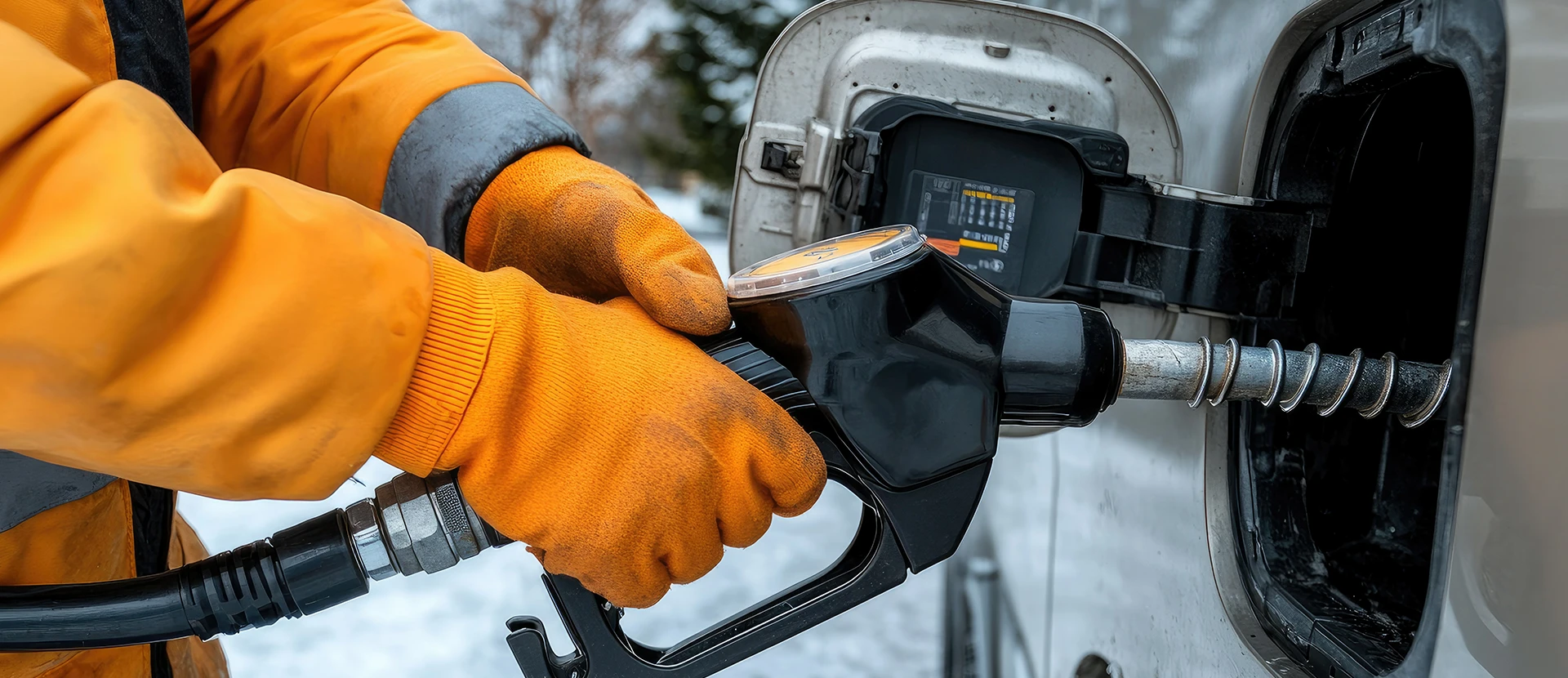
How Seasonal Changes Affect Diesel and Gasoline Performance
February 11, 2025
As the seasons change, so do the performance characteristics of the fuels we rely on.
Diesel and gasoline are both affected by temperature shifts, and understanding how seasonal changes impact fuel performance is crucial for maintaining optimal engine operation.
Renway Energy, a trusted fuel supplier in Southwestern Ontario, is dedicated to providing insight into how these changes can affect your equipment and machinery.
In this blog, we’ll explore the effects of seasonal changes on diesel and gasoline performance, helping you stay ahead and ensure your vehicles and machines run smoothly year-round.
Diesel Performance in Winter
During the winter months, diesel performance can be significantly impacted by cold temperatures.
Diesel fuel tends to thicken as the temperature drops, which can lead to fuel flow issues. This is especially concerning for businesses that rely on diesel-powered machinery for operations in colder climates.
Cold weather diesel issues such as clogged filters and fuel lines can create delays and costly repairs.
To prevent this, Renway Energy recommends using winterized diesel, which contains additives designed to keep fuel flowing smoothly even in freezing conditions. This proactive approach ensures your diesel-powered equipment performs optimally throughout the colder months.
Gasoline Performance in Summer
When the summer heat arrives, gasoline performance becomes a key factor for ensuring efficient vehicle operation.
Higher temperatures can cause gasoline to evaporate more quickly, reducing its energy content and affecting the performance of engines.
Gasoline performance in summer can lead to engine knock, reduced fuel efficiency, and difficulty starting vehicles.
Renway Energy suggests storing gasoline in a cool, dry place and using fuel stabilizers to maintain its quality during the hot months. These practices help prevent evaporation and maintain your engine’s power and reliability.
Cold Weather Diesel Issues
One of the most common cold weather diesel issues is fuel gelling, which occurs when the paraffin wax in diesel fuel begins to solidify at low temperatures.
This results in clogs within the fuel system, which can prevent the engine from starting or cause it to stall during operation.
Renway Energy advises customers to prepare for winter by ensuring their diesel fuel is treated with anti-gel additives and using fuels that are designed to perform in cold weather conditions. This extra step ensures that your equipment stays running, no matter how cold the weather gets.
Gasoline Performance in Cold Temperatures
On the flip side, gasoline performance in cold temperatures can also be problematic.
Low temperatures can cause gasoline to lose its volatility, making it harder for engines to start and run smoothly. This is especially true for older engines or vehicles that have been sitting idle for a long time.
Renway Energy recommends keeping your gasoline fresh by using fuel stabilizers and ensuring your tank is topped off before the cold sets in. By taking these simple steps, you can ensure your gasoline-powered engines perform reliably, even during the coldest months.
Ensure Year-Round Fuel Reliability with Renway Energy
Seasonal changes and fuel performance are closely linked, and understanding the impact of these changes is essential for optimal engine and machinery operation.
Renway Energy is committed to providing high-quality fuel and expert advice to ensure your equipment runs efficiently throughout the year.
Whether you’re facing cold weather diesel issues or seeking solutions to maintain gasoline performance in summer, Renway Energy has you covered.
To learn more about how seasonal changes can affect your fuel and performance, or to schedule a consultation, reach out to Renway Energy today.
Call us at 1-888-553-5550 to speak with a fuel expert. Let us help you keep your engines running smoothly all year long!

